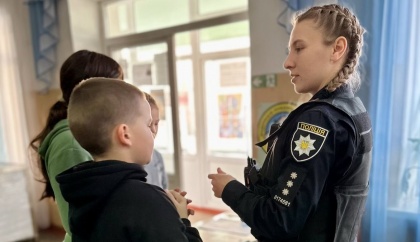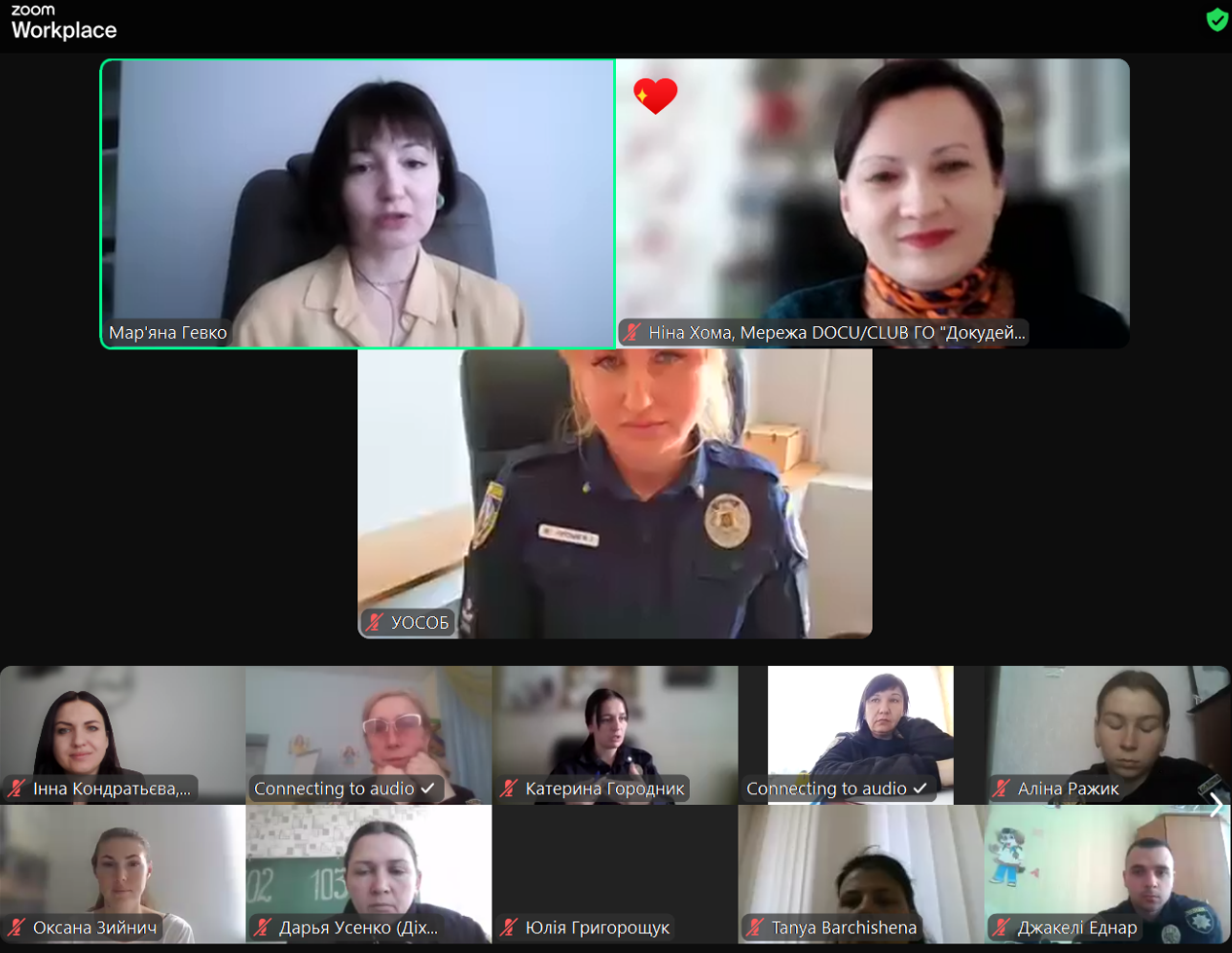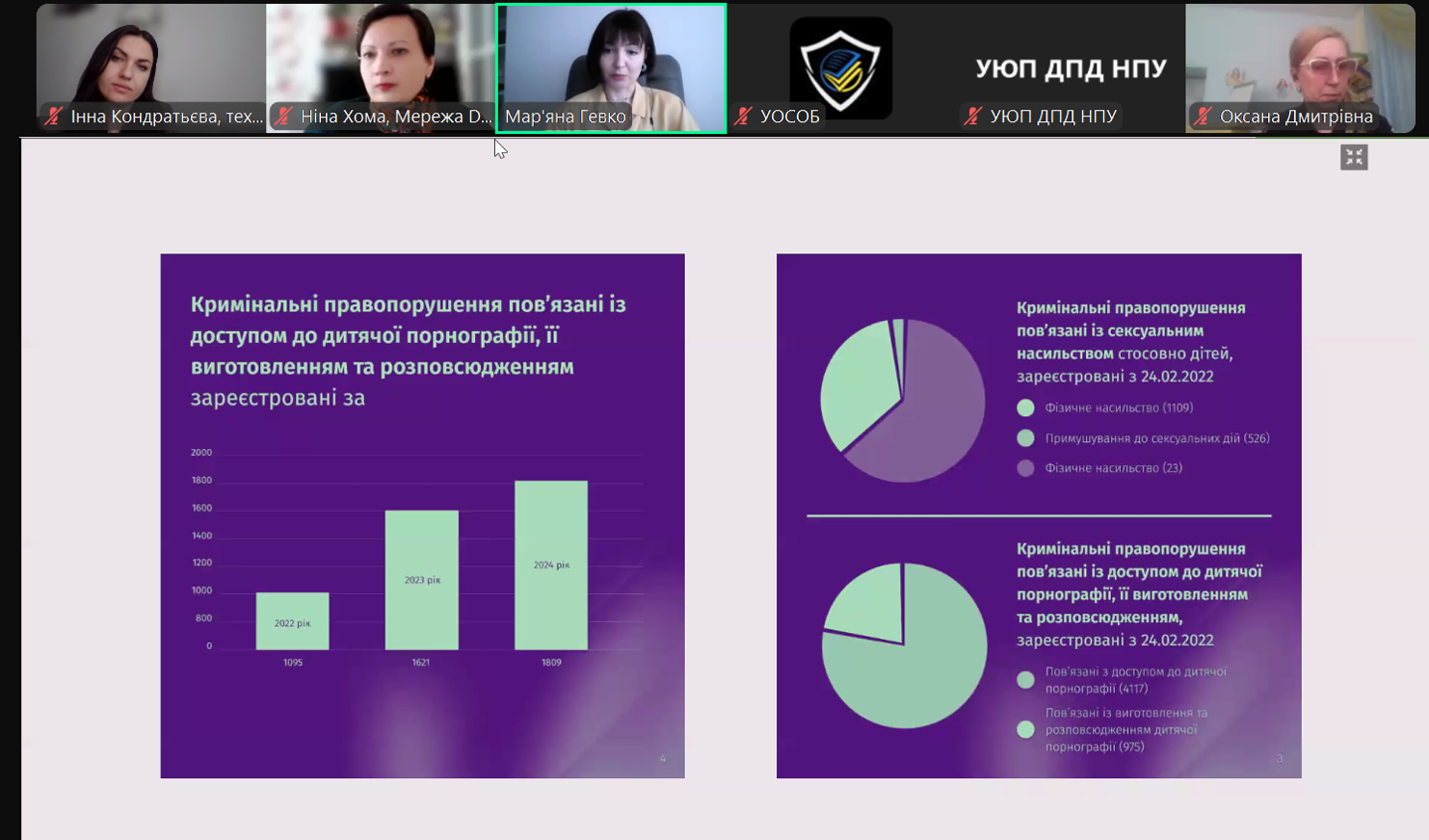
The DOCU/CLUB Network team conducted a webinar for educational safety inspectors titled “Children on the Internet: How to Protect Them?” This event was held within the framework of the awareness campaign “Sexual Abuse on the Internet: How to Protect Children,” conducted the NGO Docudays and the All-Ukrainian NGO Magnolia.
In 2024-2025, approximately 1,500 schools from all over Ukraine joined a project aimed at creating a safe environment at educational institutions. The Educational Safety Service (ESS) of the National Police of Ukraine has trained its inspectors for work at schools. These specialists perform three key roles: law enforcement, mentorship, and education. ESS inspectors are responsible not only for ensuring students’ safety but also for engaging with them on topics such as bullying, cyberbullying, and online safety.
Vira Protsiv, Police Major and Deputy Head of the Educational Safety Service, noted: “We are witnessing a rise in online crime, as perpetrators use increasingly sophisticated methods. We require up-to-date knowledge to counter sexual abuse of against children on the internet. When educational safety inspectors are well-informed and communicate effectively, children are more likely to open up and seek advice or report issues. We value the opportunity to participate in such webinars because we understand how much depends on the professionalism of every one of us.”

Screenshot from the webinar
The importance of this collaboration was also emphasized by Nina Khoma, Head of the DOCU/CLUB Network: “Our organization is committed to working with the police on protecting children from sexual abuse online. It is not only about reducing crime statistics, but also safeguarding our future. The aim is to share the knowledge and experience our team has accumulated throughout this campaign. Collaboration with educational police inspectors will help consolidate our efforts so that children are better protected, aware of their rights, and know where to turn when those rights are violated.”
ESS inspectors serve as mediators between schools, children, and parents in matters of safety, emergency prevention, and deterrence of delinquency and harmful behaviors among youth. They are trained professionals in security, crisis communication, and prevention of antisocial behavior in schools. The training offered by the DOCU/CLUB Network team was therefore highly relevant and beneficial to their work.
A total of 237 educational safety inspectors participated in the webinar. The session was led by psychologist Mariana Hevko, expert for the information campaign “Sexual Abuse on the Internet: How to Protect Children” and project manager at the DOCU/CLUB Network. She provided detailed insights into abuse of children online and different approaches to combating it. “My goal was to equip professionals with practical tools for identifying and addressing online sexual abuse in their work with children. This is crucial, as ESS inspectors are often the trusted adults helping children with these sensitive issues. The participants’ engagement and their sincere interest in this topic reinforce the necessity of such webinars,” said Mariana Hevko.

Screenshot from the webinar
What can an ESS inspector do at school to protect children from sexual abuse? How to notice that a child needs help? How can an inspector engage without causing trauma? How to build communication and cooperation with parents effectively?
These were just a few of the questions raised by inspectors during the webinar. “In the course of our discussion, I was able to structure my knowledge and hear practical advice that will be useful in my work. We now have more tools for identifying cases of sexual abuse and a clearer understanding of ways to collaborate with parents. This was a really meaningful and informative discussion,” said one of the participants.
These positive feedback and results inspire the continuation of this initiative. The DOCU/CLUB Network team and the Educational Safety Service hope to offer similar webinars to educational inspectors all over Ukraine.
The development of the DOCU/CLUB Network is funded by the Embassy of Sweden in Ukraine and the National Endowment for Democracy (NED).
The opinions, conclusions or recommendations do not necessarily reflect the views of respective governments or charitable organizations of these countries. The author(s) of this publication are solely responsible for its content.



